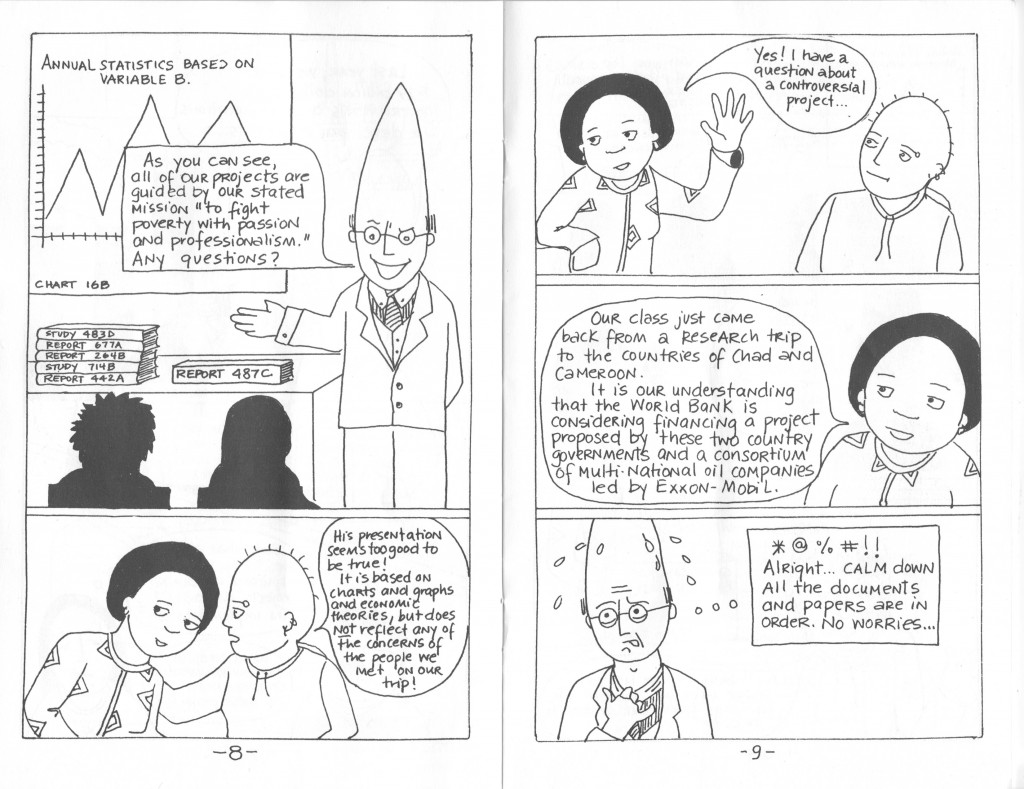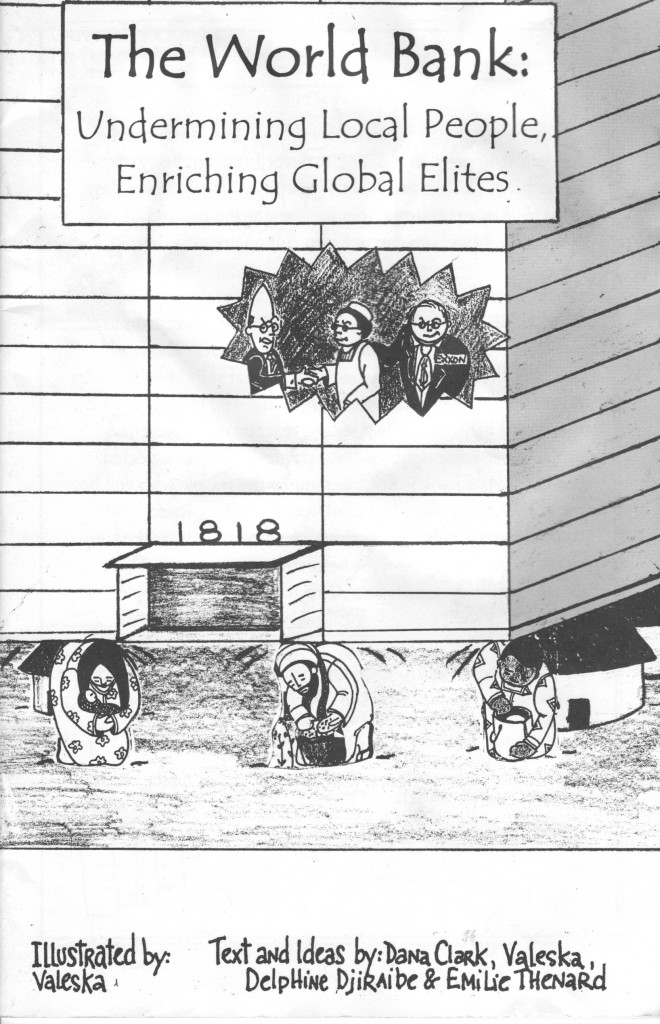By Jocelyn Medallo, Senior Attorney
The World Bank Group has a new Strategy, which outlines how it will tackle its two goals of ending extreme poverty by 2030 and promoting shared prosperity for the bottom 40 percent of the population in developing countries. As part of that Strategy, World Bank Group President Jim Kim highlighted the central role of the private sector in the Bank’s fight to end extreme poverty, saying that “engaging the private sector helps protect the interests of the poor.”
Private sector development is not a panacea to poverty. Without the necessary elements in place (for example, good governance, respect for human rights), private sector engagement can deepen the cycle of poverty. Ten years ago, the Chad-Cameroon Pipeline was one of Africa’s largest public-private development projects funded by a three-company oil consortium, the World Bank, and its private sector arm, the International Finance Corporation, with the promise that the oil revenue would be used to reduce poverty. (Read about the project here.) That promise, as predicted by the affected communities, was never fulfilled. Is this the kind of private sector project the new Strategy has in mind? Has the Bank already forgotten about the Chad-Cameroon Pipeline?
Perhaps.
A few weeks ago, during World Bank/IMF Annual Meetings, Delphine Djiraibe, a Chadian human rights lawyer and a member of CIEL’s Board, asked President Kim what, if anything, the Bank had learned from the Chad-Cameroon Project – one of the most controversial and emblematic Bank projects in the last ten years, the subject of NGO and IEG reports, and complaints to the Inspection Panel and the Compliance Advisor Ombudsman. President Kim hadn’t heard about it.
The picture painted by Delphine and others at the next day’s panel, was a grim one. They spoke of a war-torn Chad, one of the poorest countries in the world, where political instability lingers; of the project resulting in the displacement of indigenous communities from their lands; and of the ecological degradation that threatened a fishing community’s livelihoods. I heard accounts of how the project increased gender inequality and how, for example, the project led to a decrease in women’s livelihoods and an increase in prostitution. The project suffered from corruption and revenue mismanagement. Millions of dollars—rather than going to community health or education—were spent on weapons. The IEG found that not only were the project goals of capacity building and poverty reduction not met, but there was conclusive evidence that governance had sharply declined. For the communities that Delphine has worked with, their lives are worse because of the World Bank Group’s involvement.

Would the WBG invest in Chad-Cameroon under the new Strategy if it were proposed for financing today? Let’s take a look:
Strategy: Take higher risk to maximize development impacts.
Chad-Cameroon: Yes.
Strategy: Invest in transformational projects, including projects with large footprints.
Chad-Cameroon: Check.
Strategy: Increase investment in in fragile and conflict-affected states—countries with poor governance, weak institutional capacity, political instability, and, sometimes, continued violence from a conflict.
Chad-Cameroon: Chad certainly qualifies.
Strategy: Develop partnerships with the private sector.
Chad-Cameroon: Most definitely.
Will history repeat itself? Will the Bank learn from Chad-Cameroon, and if so, how?
It’s time the Bank commits to development that respects human rights—a commitment backed by the right tools and resources. Human rights made a brief cameo in the Strategy. It’s a good start, but the Bank, as the leading public development institution, will need to do better. The environmental, social, and human rights risks were not sufficiently considered in Chad-Cameroon. If the Bank continues its gamble with high risk, it should acknowledge and account for all the risks involved, including human rights. According to the UN Special Rapporteur on Human Rights Defenders, “[t]he best way of ensuring that the principles of equality and non-discrimination are respected in the context of large scale development projects is the use of human rights impact assessments.”
If the Bank’s risky gamble doesn’t pan out, communities and the environment will pay the price.

Originally posted on November 11, 2013.
